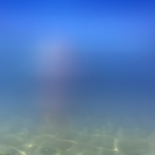Environmentalists
Ocean
biologist Jacque Cousteau (1910-1997) was an inspiration when I was growing up
and also for many people interested in ocean environmental and conservation
issues.
Recently
Jaques Cousteau’s grandson has been part of a series of documentaries
highlighting environmental and conservation issues of our planets oceans, he
specializes in oceanography which is looking into scientific aspects of our
oceans to better understand what is happening due to pollution and global
warming issues.
The sketch books to the left and below show some pencil drawing illustrations I would like to create some wall papers and fabric with either one shell drawing repeated with marl effect
warn out blistered dried out backgrounds to add a tactile approach to create a relaxed vintage feel to my design work. I would also like to create some seaweed and coral repeat surface pattern using one colour or two that are tonal. Black backgrounds and silver ,gold and bronze would add opulence and romance to surface design.
The sketch books to the left and below show some pencil drawing illustrations I would like to create some wall papers and fabric with either one shell drawing repeated with marl effect
warn out blistered dried out backgrounds to add a tactile approach to create a relaxed vintage feel to my design work. I would also like to create some seaweed and coral repeat surface pattern using one colour or two that are tonal. Black backgrounds and silver ,gold and bronze would add opulence and romance to surface design.
 |
| background textures. |
 |
| Ocean theme drawings. |
He
has recently also highlighted concerns in regard to melting ice gaps in
Antarctica and has explained present forecasts are not accurate. The environmental issue is far greater in terms of climate change and biodiversity within our oceans
Oceans and sea creatures have been depicted within art and design since ancient Greeks and Romans and other ancient cultures, tribes and religions. I have chosen to use oceans, wildlife, natural flora, nautical imagery as my focus in order to improve knowledge of conservation and marine ecology of our oceans.
Oceans and sea creatures have been depicted within art and design since ancient Greeks and Romans and other ancient cultures, tribes and religions. I have chosen to use oceans, wildlife, natural flora, nautical imagery as my focus in order to improve knowledge of conservation and marine ecology of our oceans.
Oceans are the colour blue. Colour theory is a method of inquiring what effects can a colour have on human behavior.
 |
| Sketches of ocean shells. |
History of Oceans
Cultures are developed against our oceans
around the world. Romans are one of the earliest super powers who used the sea
to transport goods around their empire. Researching ancient cultures gives us insight
into how history has developed so that we can understand how our cultures
across the globe functions previously so that we can create links to modern day
society. It shows us how previous trading links, linking continents developed.
Looking at sea levels at different historical eras can give us important
information in regard to when sea levels dropped which in turn created an
environment for humans to travel across continents.

